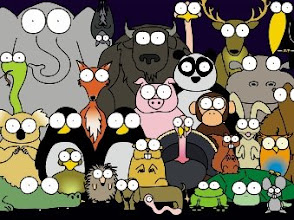1 - Late nineteen-twenties, Kellogg and Post dominated the packaged cereal market. The Depression hit. Post did reined in expenses and cut back on advertising, Kellogg doubled its ad budget and heavily pushed its new cereal, Rice Krispies.
By 1933 Kellogg’s profits had risen almost 30% and had become what it remains today: the industry’s dominant player.
2 - When hard times hit, most companies end up behaving more like Post. Hunkering down, cuting spending, waiting for good times to return, making fewer acquisitions, cutting advertising budgets, investing less in research and development.
They do all this to preserve what they have, what they are.
3 - Studies have shown that companies that keep spending on acquisition, advertising, and R. & D. during recessions do significantly better than those which make big cuts.
4 - Although deep pockets help in a downturn, recessions nonetheless create more opportunity for challengers(E.g.:when everyone is advertising it’s hard to separate yourself from the pack; when ads are scarcer, the returns on investment seem to rise).
5 - Some examples
- Chrysler during the Great Depression had been the third player in the U.S. auto industry (behind G.M. and Ford). Early in the downturn it gave a big push to a new brand—Plymouth—targeted at the low end of the market. By 1933 it had surpassed Ford to become North America’s second-biggest automaker. - Ok, ok, now they are asking the goverment to fund them and they are finalizing the partnership with Italian FIAT. But that's another story.
- Hyundai has made huge gains in market share this year, thanks to a hefty advertising budget and a guarantee to take back cars from owners who have lost their jobs. Those gains may turn out to be temporary, but in fact the benefits from recession investment are often surprisingly long-lived, with companies maintaining their gains in market share and sales well into economic recovery.
6 - The reason why companies are so quick to cut back when trouble hits has something to do with economist Frank Knight's distinction between risk and uncertainty.
- Risk describes a situation where you have a sense of the range and likelihood of possible outcomes.
- Uncertainty describes a situation where it’s not even clear what might happen, let alone how likely the possible outcomes are.
Uncertainty, in a recession, dominates everything. So it’s natural to focus on what you can control: minimizing losses and improving short-term results.
7 - Some other examples:
- Kraft introduced Miracle Whip in 1933 and saw it become America’s best-selling dressing in six months.
- Texas Instruments brought out the transistor radio in the 1954 recession.
- Apple launched the iPod in 2001.
8 - Lesson learned: The academics Peter Dickson and Joseph Giglierano have argued that companies have to worry about two kinds of failure: “sinking the boat” (wrecking the company by making a bad bet) or “missing the boat” (letting a great opportunity pass).
Credits:
Hanging Tough by James Surowiecki - The New Yoirker Financial Page
link: http://www.newyorker.com/talk/financial/2009/04/20/090420ta_talk_surowiecki
Joanna Arnow’s new film mines the comic potential of distance and framing,
in an examination of degradations large and small.
6 ore fa



